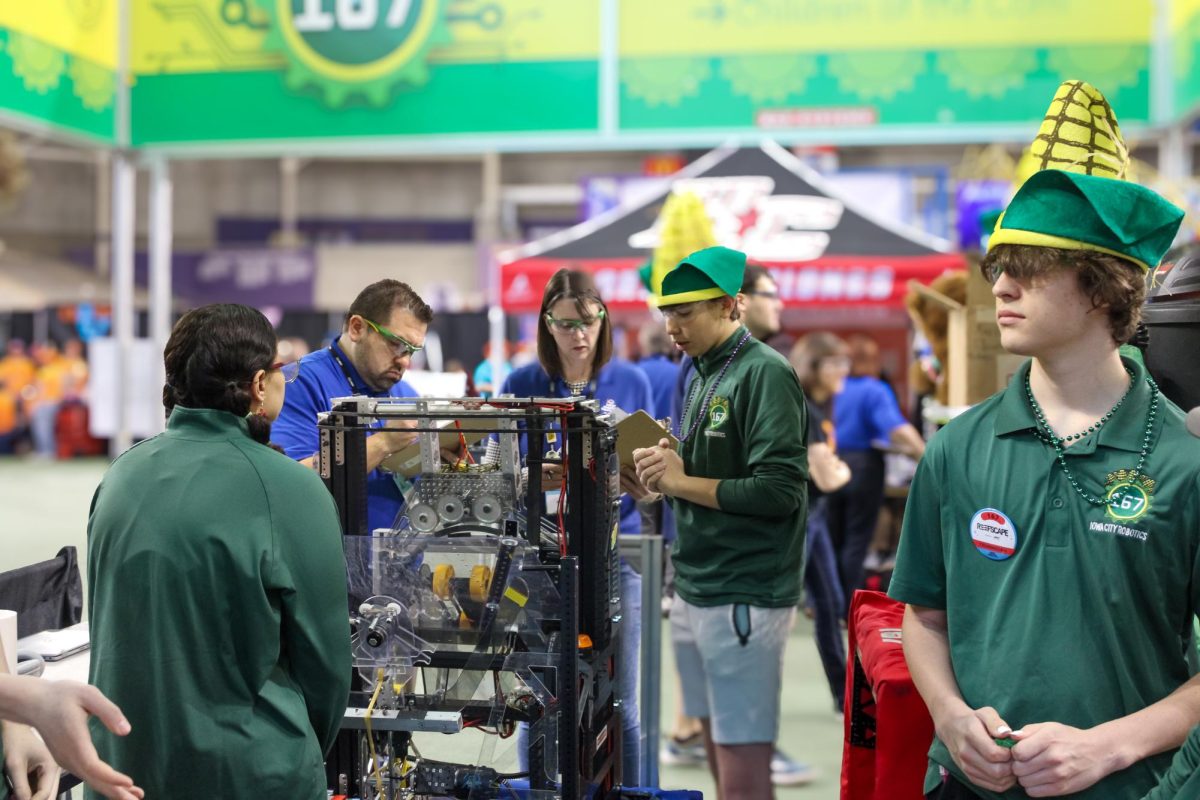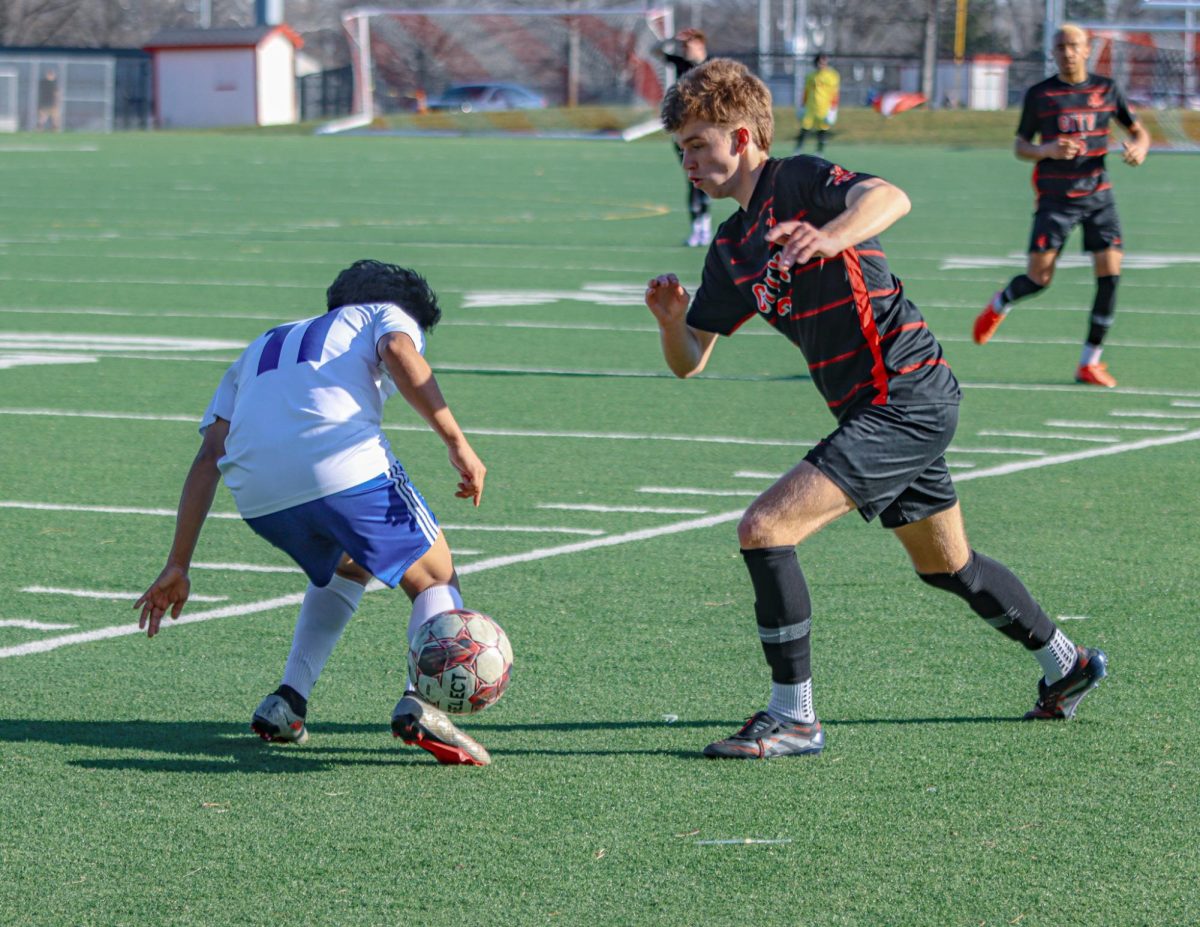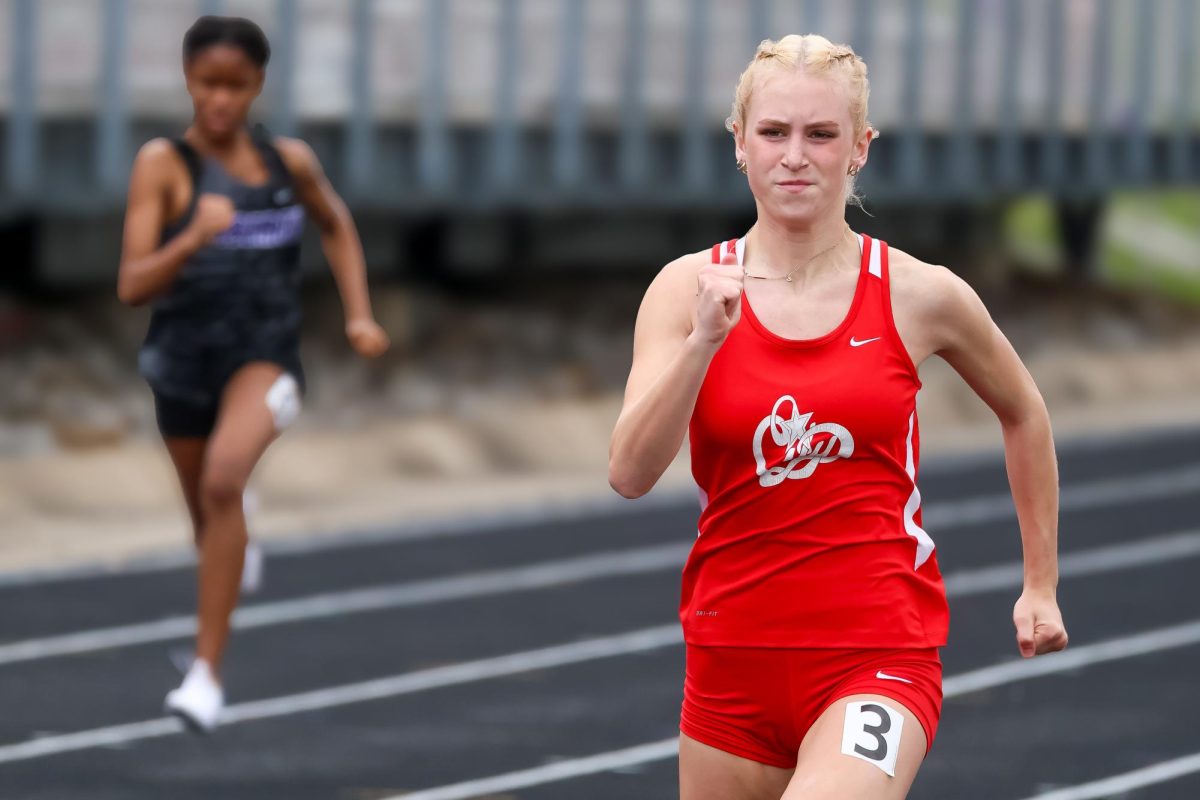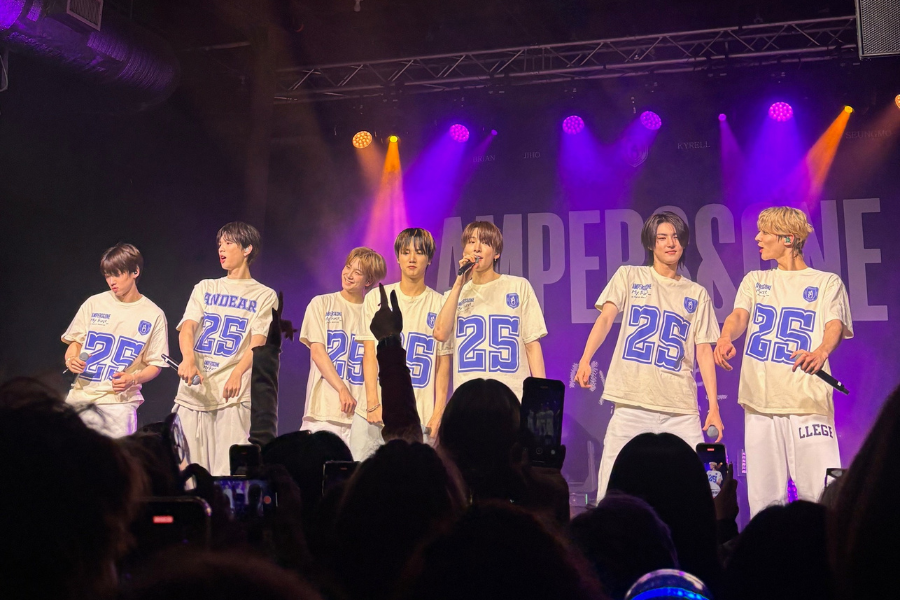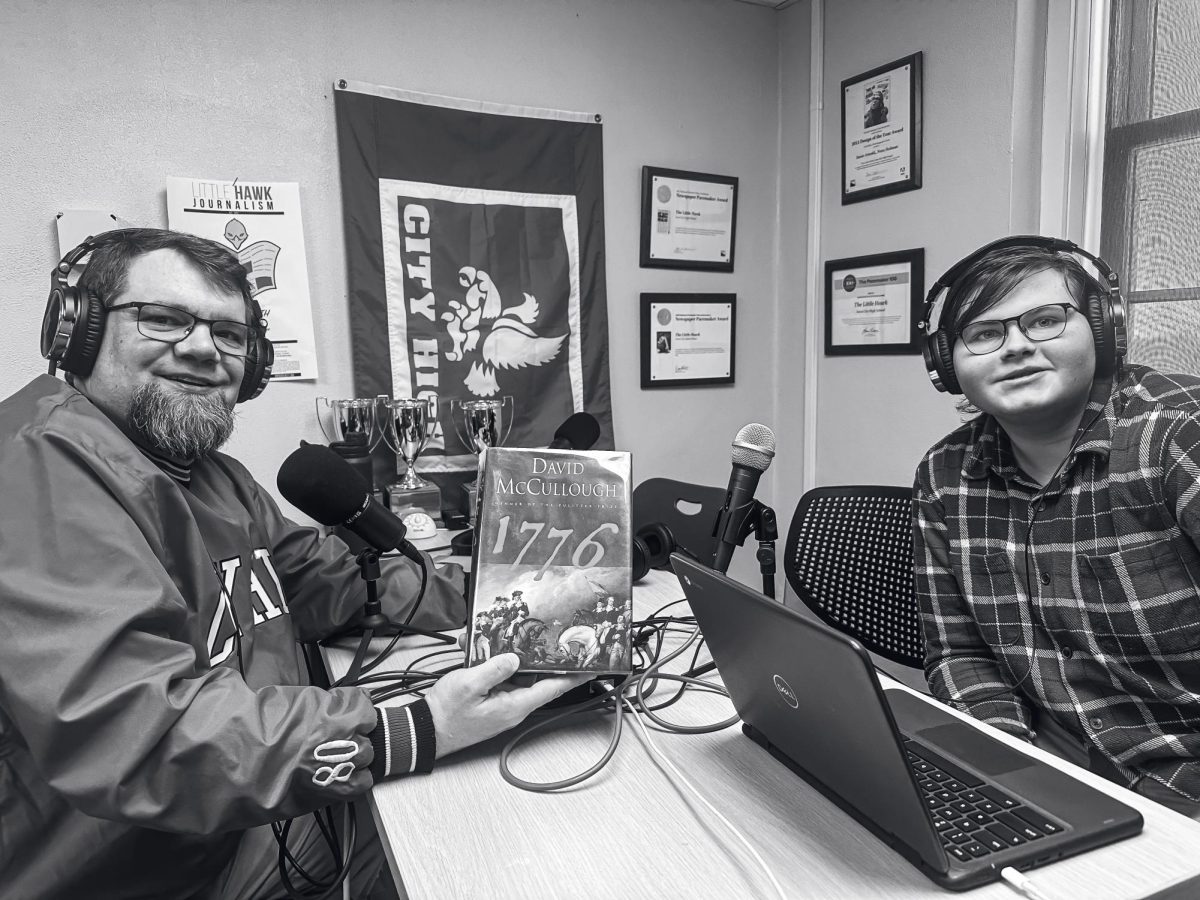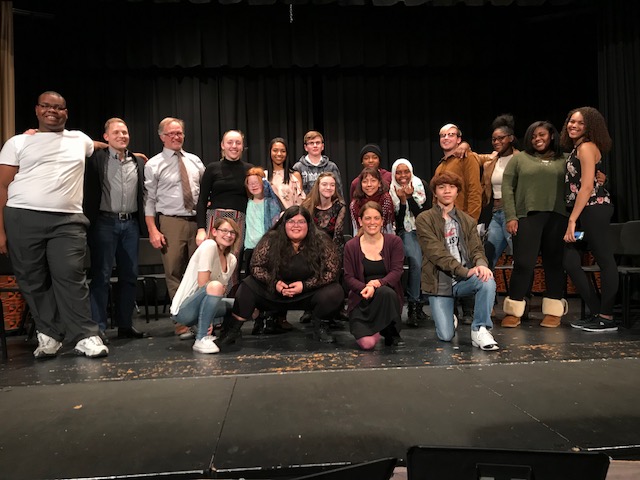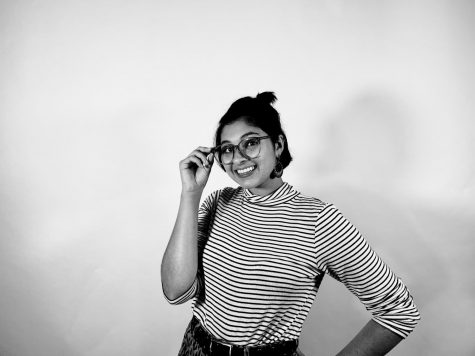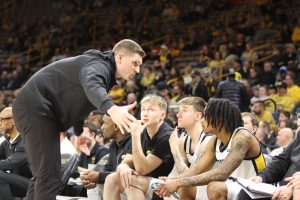Hear My Voice Program Tunes Up Students’ Skills
April 4, 2018
Many music programs at City High are established programs with established styles of music, and they rarely change to compensate for individual needs. In contrast, Dr. Beth Ackerson is currently teaching the new Hear My Voice program, which strives to accommodate students’ unique skill levels and preferences.
“The goal of this class is to give people a space to make their own music during the school day,” said Ackerson. “I feel like a lot of times in school we have a lot of demands and things, so I wanted to give the opportunity for these students, who are really interested in creating their own music, just time to be creative and be on their own and have their choice of how they’re going to run that period of the day.”
Hear My Voice was created at the beginning of the 2017-18 school year, Ackerson said, to create “an opportunity for kids to create their own performances and do music that they might be interested in and things like that in the classroom setting.”
“Mr. Bacon is the one who came up with the idea, and he wanted to create a class here that was an opportunity for students to do music that aren’t already in orchestra and band and choir, or maybe that’s not fitting exactly what they’re interested in doing, or maybe they don’t have the background in it,” Ackerson said. “I just kind of jumped on, and I said, ‘Can I help with this?’ and since I teach Adaptive Music, too, there’s some students that I work with in the adaptive program who would really benefit from this kind of class too, so we joined forces and we team-taught the first trimester and we’re still team-teaching the course.”
Ackerson was trained at the University of Iowa and has worked at elementary schools prior to and in conjunction with teaching at City High. She said that her previous experience in elementary-school music programs was a driving force behind her desire to teach Hear My Voice.
“I teach General Music at the elementary school, and so for me, I thought, ‘Oh, this is a great opportunity to get to work with high-school students and do nontraditional high-school music,’” Ackerson said. “It’s not just the typical thing you would see at a high school, it’s exploring other genres of music like African music, or gospel music, or jazz, or I have some students who have asked me if we can do some reggae, things like that–things that maybe they don’t get to do in other parts of their day.”
Heba Abdalla ‘19 said that Hear My Voice did facilitate her exploration of different genres of music.
“In choir, you don’t really do stuff like jazz…and we got to dabble in that a little bit and learn some jazz pieces and learn some African drumming, which was really cool,” Abdalla said. “I hadn’t done that before.”
Abdalla also said that the class helped her develop and grow more confident as a singer.
“[The instructors] slowly get you comfortable until you’re singing in front of people…at the end when we had our little concert thing, people were more comfortable singing in front of a large group,” Abdalla said. “For me, that really helped, getting comfortable with talking in front of people and singing especially, because I’ve always been a really shy person.”
Kamara Shaw ‘18 agreed.
“I already sing in my church choir, so I’ve had a lot of experience singing in front of others,” Shaw said. “It was very different to sing in front of my peers, though. I gained…more confidence in my vocal skills.”
Ackerson also said that one of her hopes for the class was that it would be diverse and inclusive.
“We have a mixture of ethnicities, I would say, we have a lot of different variety there, and gender too, we have students with different gender identities…it’s just been a really diverse group of kids, a really diverse group of students, which I love. I think everybody feels like they have a voice in the class and they can do what suits them, they don’t have to fit any particular mold. I don’t want the students to feel like that, I want them to feel like they don’t have to fit any mold,” Ackerson said. “They can start where they’re at with their skill level and their background and their experience and they can grow from there, and hopefully either keep doing what they’re doing and make it bigger and better–or maybe they can even find something different, find something new that they’re interested in doing or find a new friend or work with somebody in a different way that they had before.”
Ackerson mentioned that collaboration was an important component of Hear My Voice.
“People come at all different levels and that’s what’s kind of cool about it because people help one another and they can use their particular interests and skills and they can bring their own piece to the class…sometimes we have some students that say, ‘I wrote this song, but I really don’t feel like I can sing it,’ and then there’s someone else in the class who will say, ‘Oh, I want to sing that for you,’” Ackerson said. “Something I’ve loved about the class is how kind the students are to each other. They’re really respectful of the differences in the classroom, because we have such a wide variety of kids. People have been really respectful of one another…in the sharing, people have been really gentle.”
Abdalla, too, thought that the community of the class was beneficial.
“It was a small class, since it was the first time they were trying it, so we were kinda like guinea pigs in a way but we went through different genres and we got a feel of different kinds of music and it was really fun and everybody was so supportive of one another, so if someone was shy you’d go up and help them and you’d encourage them,” Abdalla said. “It was a really nice atmosphere.”
However, Ackerson said, there were some challenges in creating the course.
“I’ve emailed counselors about it and people are starting to be more aware of it but that’s a challenge is…people are like, ‘Well, what is this?’ It’s so new that it’s just taking time for people to learn more about it,” Ackerson said. “Because it’s brand-new, we’re creating it as we go. I definitely created a syllabus and stuff, but both trimesters we’ve changed things and we’re trying to make it the most useful to the students. I think the biggest challenge is to be responsive and to keep providing something to the students that’s useful to them.”
The other classes Ackerson teaches, like the Adaptive Music program, overlap with Hear My Voice in beneficial ways, she said.
“Some students are in my third-hour Adaptive class and most of them have disabilities…some of them are nonverbal and I love them and I love working with them in that class and it’s really well suited to them because we do a lot of movement and a lot of music that they drum to and stuff like that. The second-hour class is for students that are a little more able to work independently, because there’s such a wide variety of people with lots of different needs,” Ackerson said. “I think it’s nice to have that opportunity. I’ve noticed a lot of great friendships and support between kids who are mainstream and kids who are in the adaptive program in the second-hour class.”
Ackerson thought that this tied in with what was for her the point of the Hear My Voice class.
“The main point is to get people from different, diverse backgrounds, who don’t necessarily feel like they have a place in the music department here,” Ackerson said. “It’s a class that can be for anybody who is interested in music. I think that’s what’s kind of cool about it, is that it can be a flexible enough class that people hopefully will find their niche in that class and be able to do something that works for them.”




